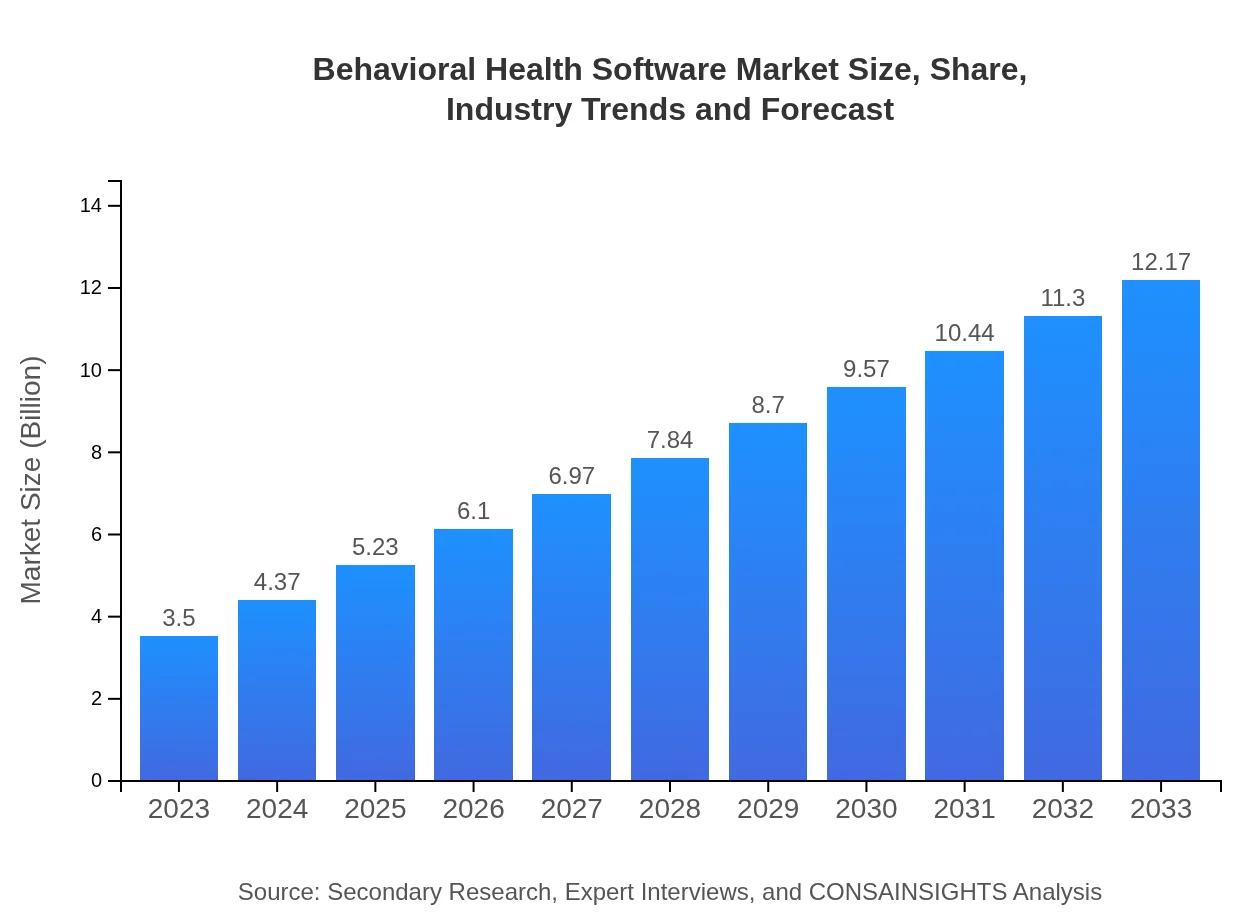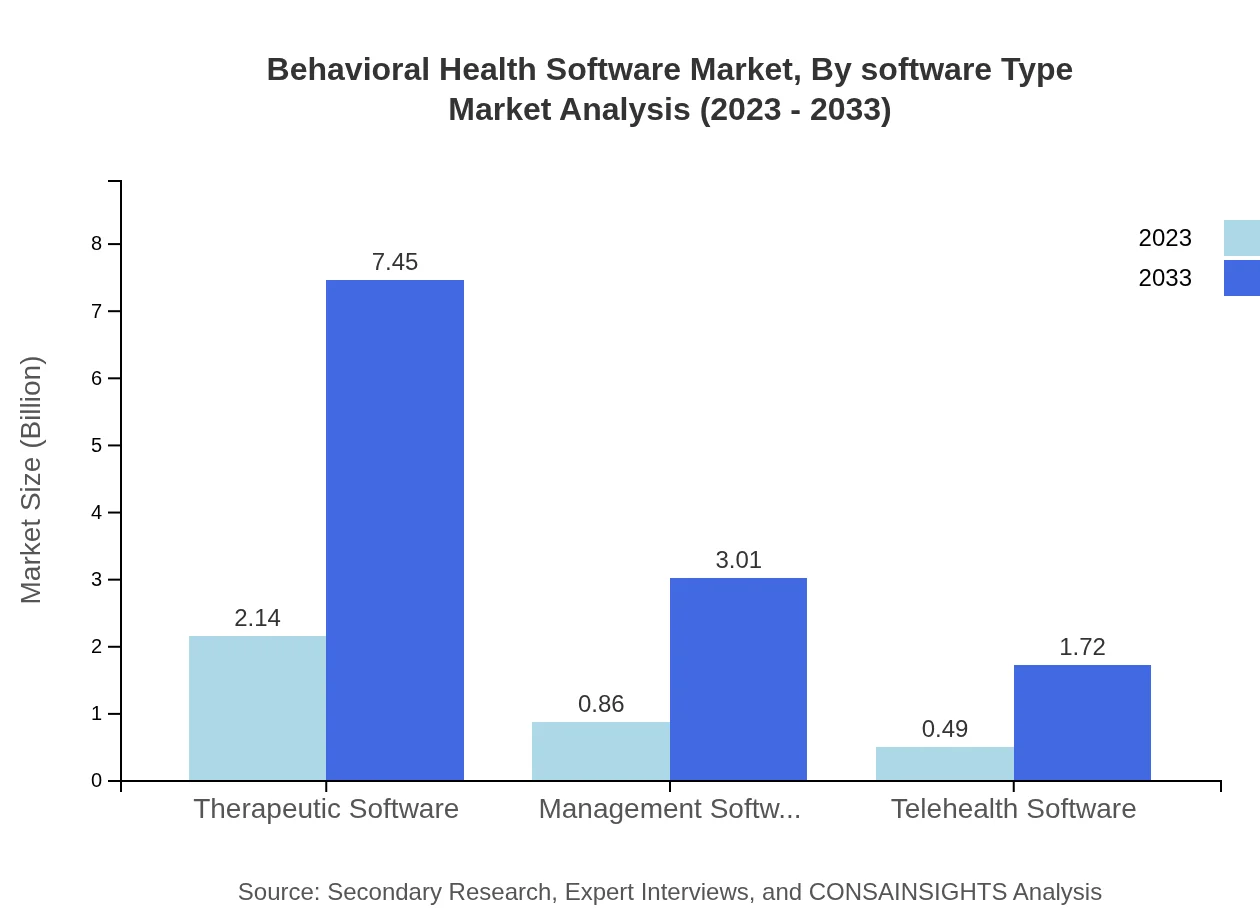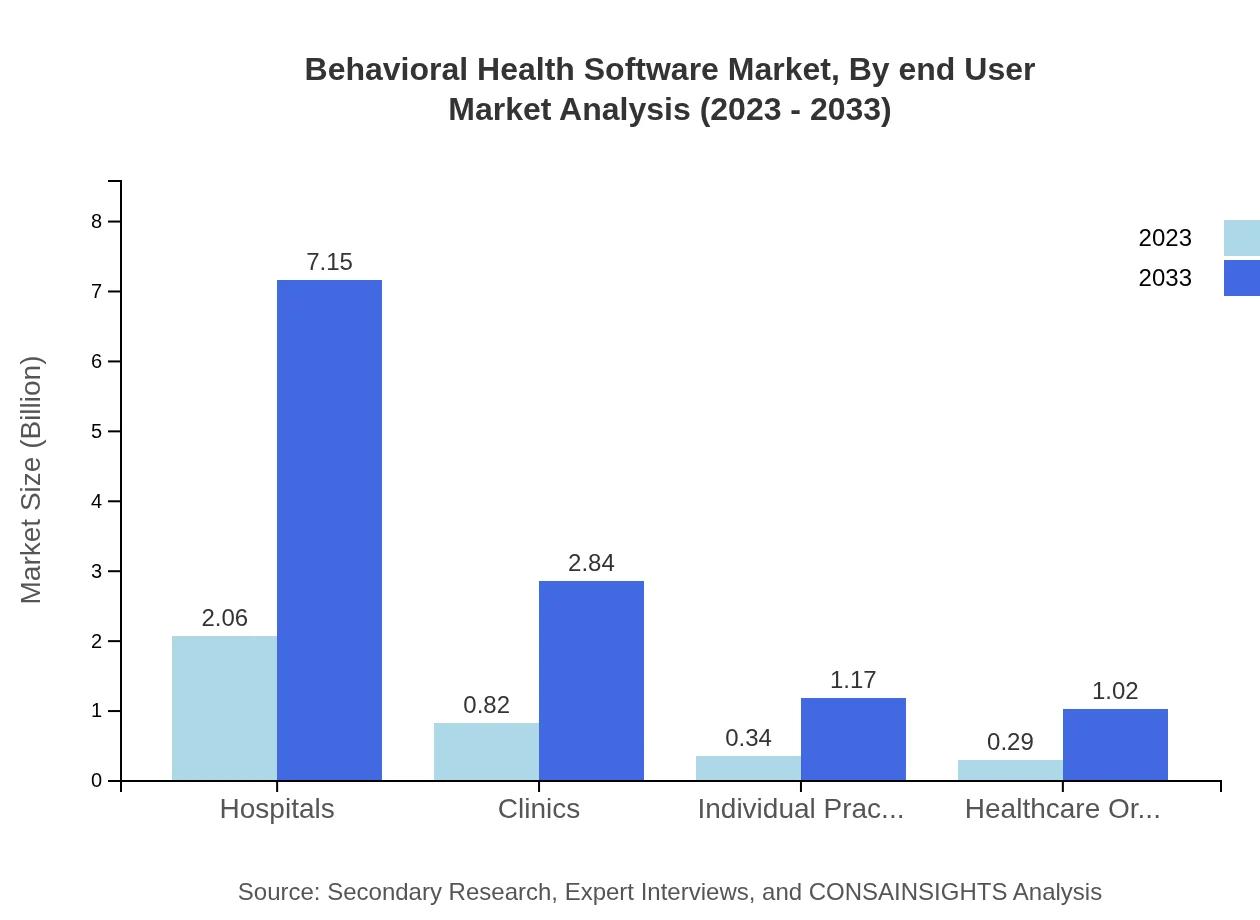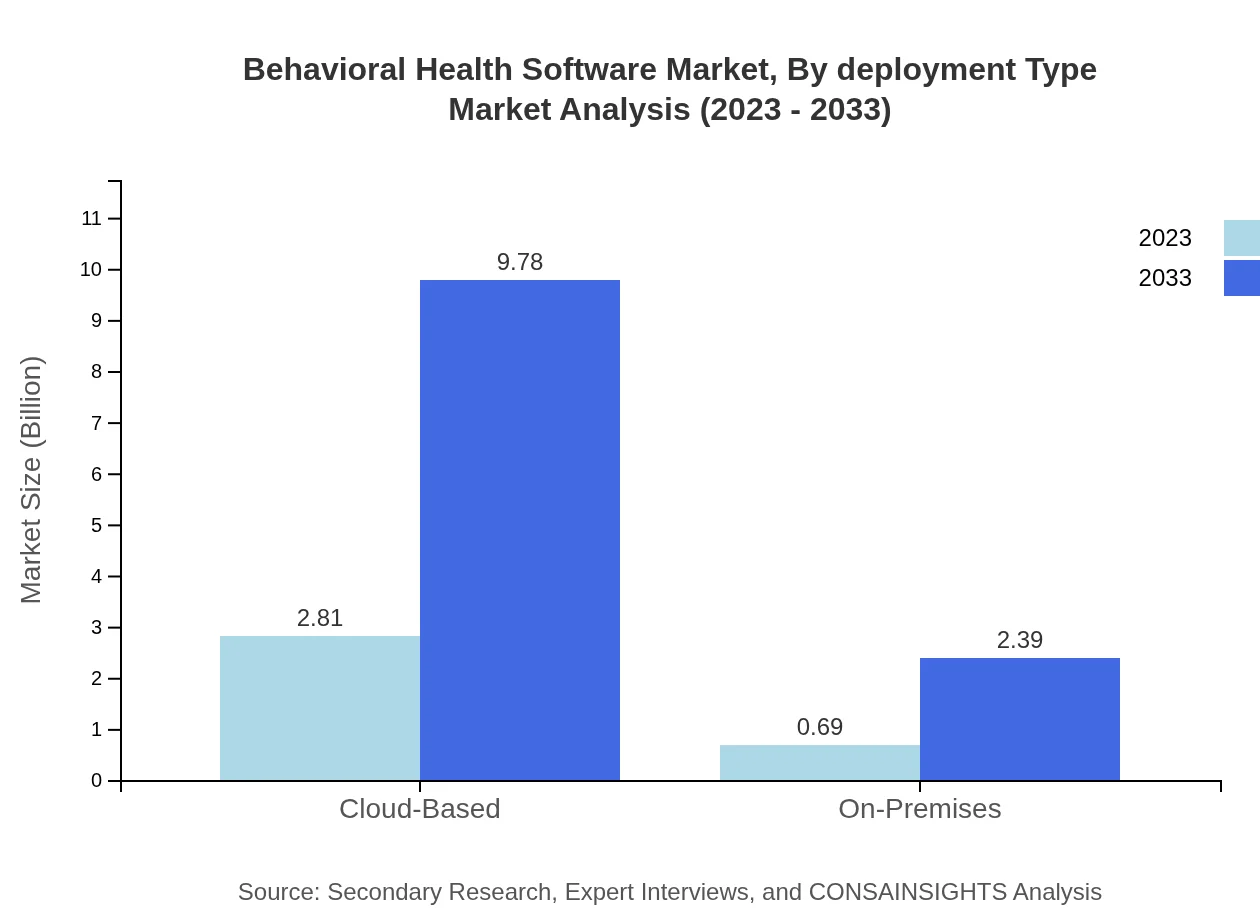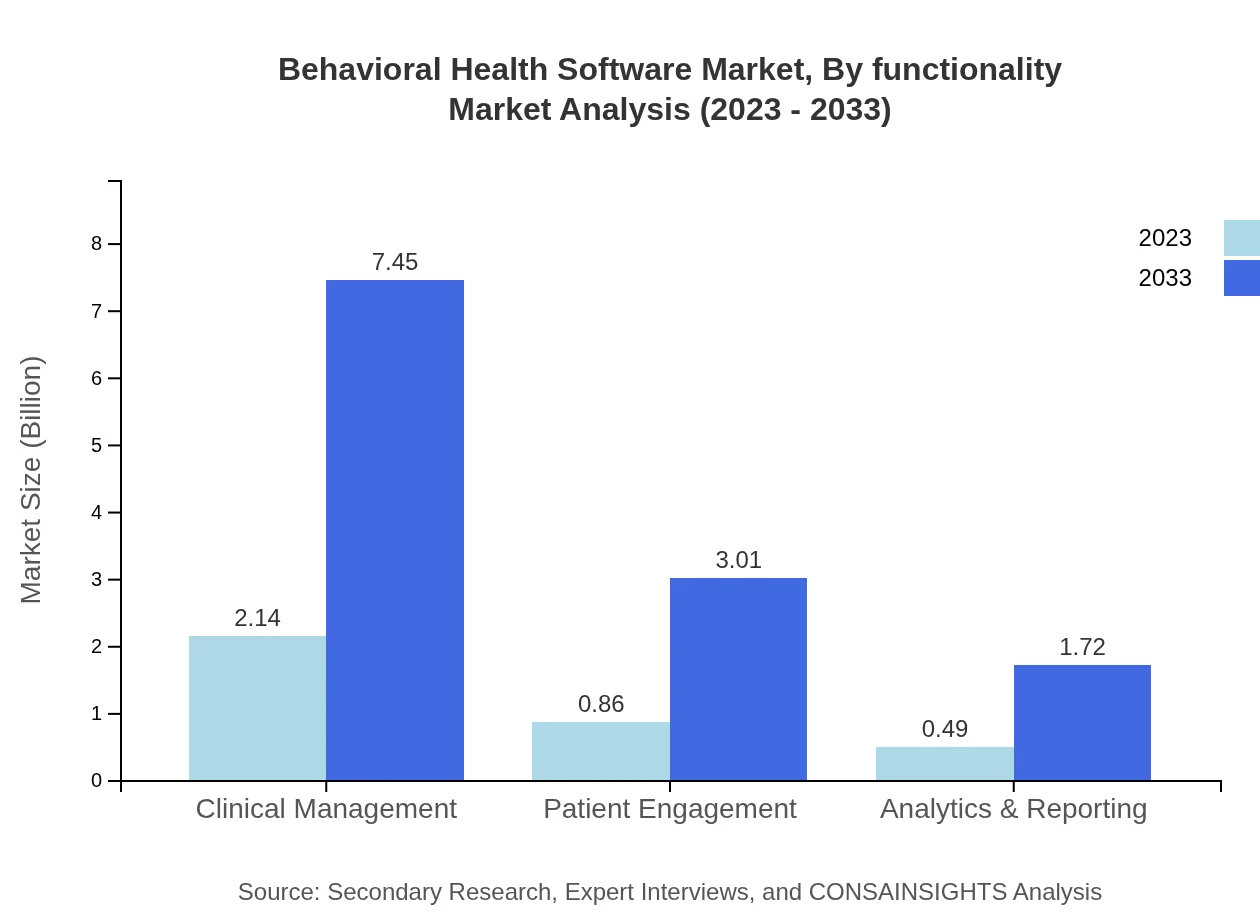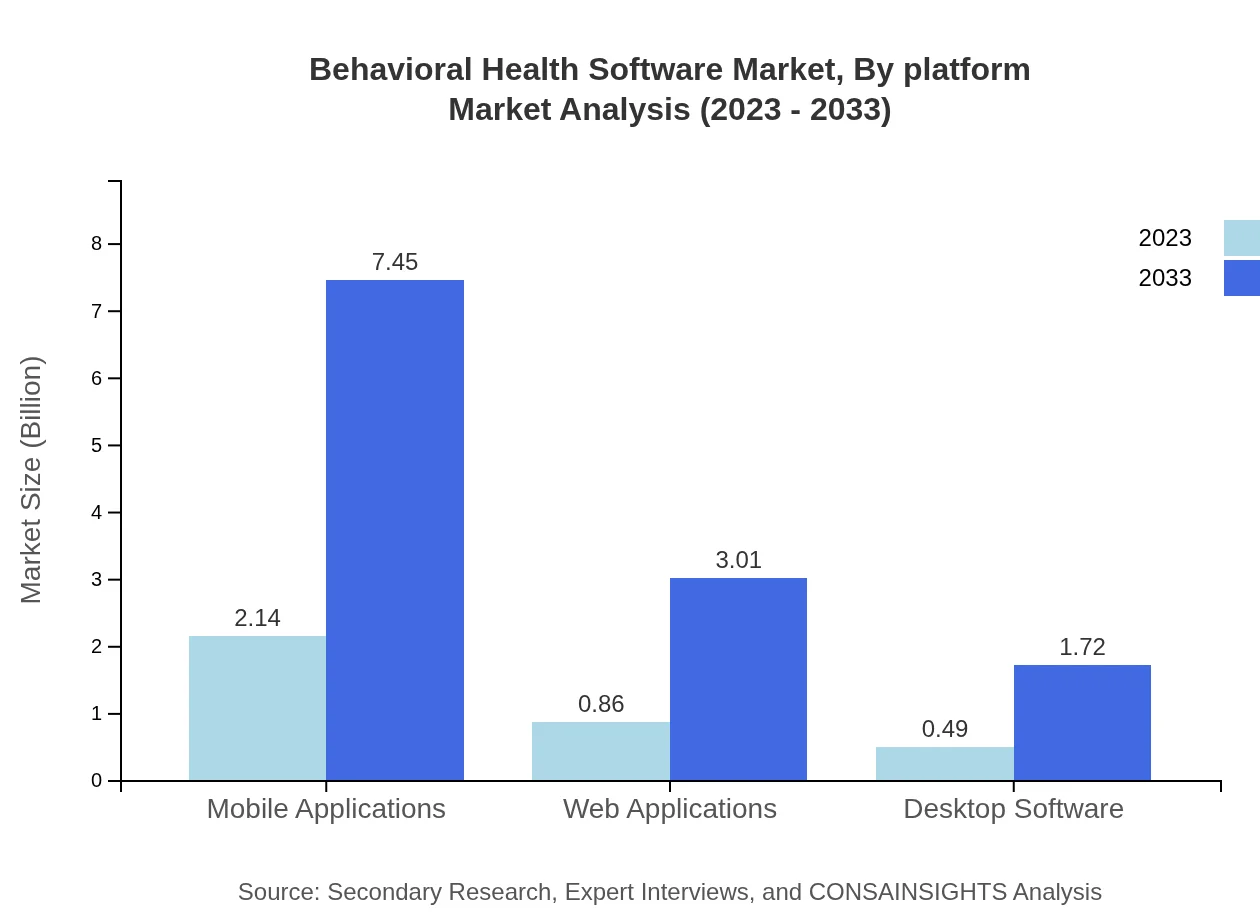Behavioral Health Software Market Report
Published Date: 31 January 2026 | Report Code: behavioral-health-software
Behavioral Health Software Market Size, Share, Industry Trends and Forecast to 2033
This report provides a comprehensive analysis of the Behavioral Health Software market, covering key insights on market size, growth potential, segmentation, regional analysis, and industry trends, with a forecast period from 2023 to 2033.
| Metric | Value |
|---|---|
| Study Period | 2023 - 2033 |
| 2023 Market Size | $3.50 Billion |
| CAGR (2023-2033) | 12.7% |
| 2033 Market Size | $12.17 Billion |
| Top Companies | Cerner Corporation, Epic Systems Corporation, McKesson Corporation, Allscripts Healthcare Solutions |
| Last Modified Date | 31 January 2026 |
Behavioral Health Software Market Overview
Customize Behavioral Health Software Market Report market research report
- ✔ Get in-depth analysis of Behavioral Health Software market size, growth, and forecasts.
- ✔ Understand Behavioral Health Software's regional dynamics and industry-specific trends.
- ✔ Identify potential applications, end-user demand, and growth segments in Behavioral Health Software
What is the Market Size & CAGR of Behavioral Health Software market in 2033?
Behavioral Health Software Industry Analysis
Behavioral Health Software Market Segmentation and Scope
Tell us your focus area and get a customized research report.
Behavioral Health Software Market Analysis Report by Region
Europe Behavioral Health Software Market Report:
The European Behavioral Health Software market is expected to increase from USD 1.25 billion in 2023 to USD 4.33 billion in 2033, largely attributed to the rising emphasis on mental health and integrated care models in healthcare systems across the region.Asia Pacific Behavioral Health Software Market Report:
In the Asia-Pacific region, the Behavioral Health Software market is projected to grow from USD 0.61 billion in 2023 to USD 2.12 billion in 2033. The growth is fueled by increasing awareness of mental health issues, increasing healthcare expenditure, and government initiatives promoting mental health policies.North America Behavioral Health Software Market Report:
North America's Behavioral Health Software market is anticipated to expand from USD 1.15 billion in 2023 to USD 3.98 billion in 2033. This significant growth is primarily due to the technological advancements in healthcare delivery, along with a strong regulatory framework aimed at improving mental health services.South America Behavioral Health Software Market Report:
The South American market for Behavioral Health Software is expected to rise from USD 0.16 billion in 2023 to USD 0.56 billion in 2033. Factors such as the rising prevalence of mental health conditions and the expansion of telemedicine services are driving this growth.Middle East & Africa Behavioral Health Software Market Report:
The Middle East and Africa market is projected to grow from USD 0.34 billion in 2023 to USD 1.18 billion in 2033. Growth drivers include the increase in mental health awareness and the expansion of digital health infrastructures.Tell us your focus area and get a customized research report.
Behavioral Health Software Market Analysis By Software Type
The software type segment includes clinical management software, therapeutic software, patient engagement tools, and analytics and reporting solutions. The cloud-based deployment model dominates the segment, showing a market size of USD 2.81 billion in 2023, growing to USD 9.78 billion by 2033, due to its scalability and effective patient data management capabilities.
Behavioral Health Software Market Analysis By End User
Segments include hospitals, clinics, individual practitioners, and healthcare organizations. Hospitals currently hold the largest market share of 58.74% in 2023, due to their significant reliance on integrated healthcare solutions.
Behavioral Health Software Market Analysis By Deployment Type
The market is categorized into cloud-based and on-premises solutions. Cloud-based solutions are highly favored, accounting for 80.33% share in 2023 thanks to their flexibility and lower upfront costs.
Behavioral Health Software Market Analysis By Functionality
Functionality segments encompass clinical management, patient engagement, and analytics. Clinical management software is dominant due to its critical role in managing patient data and cares processes.
Behavioral Health Software Market Analysis By Platform
The market is represented by mobile applications, web applications, and desktop software. Mobile applications are leading with a 61.17% market share in 2023, reflecting the growing trend towards remote patient engagement.
Behavioral Health Software Market Trends and Future Forecast
Tell us your focus area and get a customized research report.
Global Market Leaders and Top Companies in Behavioral Health Software Industry
Cerner Corporation:
A leading healthcare technology company that provides various healthcare IT solutions, including electronic health records and behavioral health software.Epic Systems Corporation:
Known for its powerful electronic health record systems, Epic offers solutions focused on behavioral health management and data analytics.McKesson Corporation:
A global healthcare services and information technology company, McKesson delivers software solutions that enhance care delivery in behavioral health.Allscripts Healthcare Solutions:
Allscripts provides integrated technology solutions that support clinical, financial, and operational needs in the behavioral health domain.We're grateful to work with incredible clients.









FAQs
What is the market size of Behavioral Health Software?
The Behavioral Health Software market is valued at $3.5 billion in 2023, with a projected CAGR of 12.7%, indicating robust growth driven by increasing demand for software solutions to enhance patient care and streamline operational efficiencies.
What are the key market players or companies in the Behavioral Health Software industry?
Key players in the Behavioral Health Software industry include major firms specializing in healthcare technology solutions. They provide innovative software for clinical management, patient engagement, and analytics tailored to enhance mental health and substance abuse treatment.
What are the primary factors driving the growth in the Behavioral Health Software industry?
Growth in the Behavioral Health Software market is driven by rising awareness of mental health services, increasing prevalence of mental disorders, advancements in technology, and the demand for integrated care solutions that ensure comprehensive patient treatment measures.
Which region is the fastest Growing in the Behavioral Health Software?
The fastest-growing region in the Behavioral Health Software market is Asia Pacific, projected to grow from $0.61 billion in 2023 to $2.12 billion by 2033. This growth is propelled by increasing healthcare investments and improving mental health awareness.
Does ConsaInsights provide customized market report data for the Behavioral Health Software industry?
Yes, ConsaInsights offers customized market report data tailored to specific requirements in the Behavioral Health Software industry. Clients can receive detailed analysis and insights that align with their strategic needs.
What deliverables can I expect from this Behavioral Health Software market research project?
Deliverables from the Behavioral Health Software market research project include comprehensive reports with market segmentation analysis, competitive landscape assessments, trends influence, and forecasts providing actionable insights.
What are the market trends of Behavioral Health Software?
Current trends in the Behavioral Health Software market include the rise of cloud-based solutions, increasing utilization of mobile applications for mental health, and advancements in telehealth integration, enhancing accessibility to care and data analytics capabilities.

